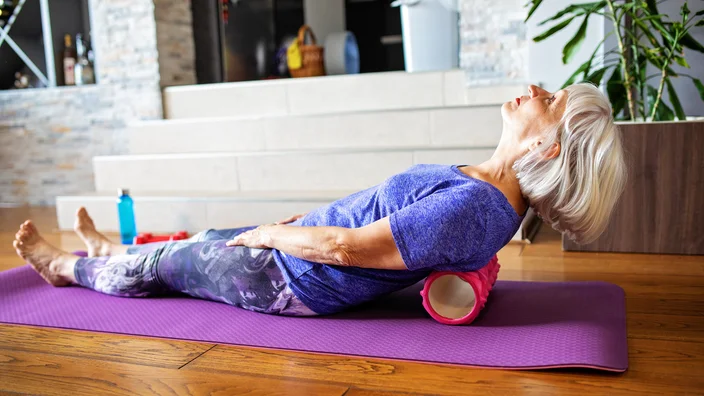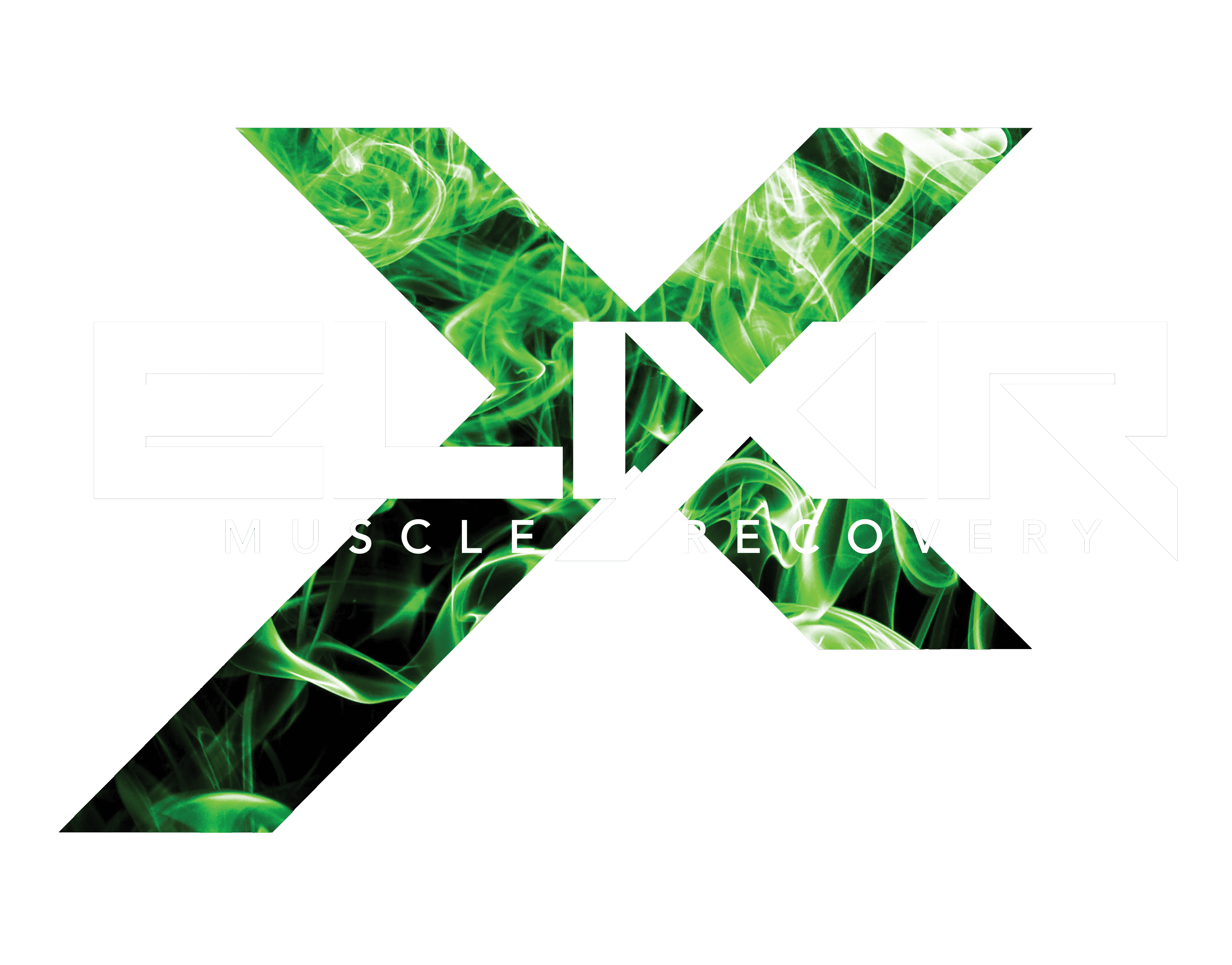How to Heal Sore Muscles and Why they Get That Way
Sore muscles are a common problem for athletes, especially in youth sports. Delayed onset muscle soreness is what it’s called when your muscles are sore and tender after you’ve pushed them hard in a game or practice.
Several potential causes of sore muscles include overuse, not warming up properly before exercise, sudden changes in activity levels (like switching from regular workouts to more intense training), and simply pushing yourself too much without giving your muscles time to recover.
Fortunately, there are several things you can do to relieve muscle soreness and prevent them from getting that way in the first place. Some simple strategies include stretching regularly before and after exercise, icing your muscles after working out or playing a game, drinking plenty of water to keep yourself hydrated, and taking a break from exercising when your muscles are extra sore.
Several potential causes of sore muscles include overuse, not warming up properly before exercise, sudden changes in activity levels (like switching from regular workouts to more intense training), and simply pushing yourself too much without giving your muscles time to recover.
Fortunately, there are several things you can do to relieve muscle soreness and prevent them from getting that way in the first place. Some simple strategies include stretching regularly before and after exercise, icing your muscles after working out or playing a game, drinking plenty of water to keep yourself hydrated, and taking a break from exercising when your muscles are extra sore.

Why Do My Muscles Get So Sore During Practice?
Muscles are made up of tiny muscle fibers that, when activated, cause a contraction that allows us to move and perform various types of physical activity. During rigorous training sessions or practice, you typically use these fibers repeatedly in quick succession. This often leads to tiny micro-tears in the fibers, leaving your muscles feeling sore and tight.
Muscle soreness typically peaks around 24 to 48 hours after exercise and may last for several days. However, there are a few things you can do to help speed up the healing process and reduce soreness in your muscles. These include stretching regularly before and after exercise, using compression garments like socks or arm sleeves to increase blood flow and promote healing of the muscle fibers, drinking plenty of water, and getting enough sleep.
Muscle soreness typically peaks around 24 to 48 hours after exercise and may last for several days. However, there are a few things you can do to help speed up the healing process and reduce soreness in your muscles. These include stretching regularly before and after exercise, using compression garments like socks or arm sleeves to increase blood flow and promote healing of the muscle fibers, drinking plenty of water, and getting enough sleep.
How Can I Prevent Muscle Soreness From Happening in the First Place?
Muscle pain is often caused by overuse, poor form or technique, sudden activity levels increase, dehydration, and lack of adequate recovery. To help prevent muscle soreness from happening in the first place, it is important to be consistent with your exercise routine and take time to warm up properly before working out or playing a game.
In addition, making sure that you stay sufficiently hydrated by drinking plenty of water throughout the day, avoiding overuse or pushing your body too hard during an intense workout, and giving yourself adequate rest between training sessions can all help to reduce muscle soreness. And if you do happen to experience severe soreness in your muscles from time to time, be sure to talk to your doctor or a sports performance specialist for advice on how to heal sore muscles and prevent it.
In addition, making sure that you stay sufficiently hydrated by drinking plenty of water throughout the day, avoiding overuse or pushing your body too hard during an intense workout, and giving yourself adequate rest between training sessions can all help to reduce muscle soreness. And if you do happen to experience severe soreness in your muscles from time to time, be sure to talk to your doctor or a sports performance specialist for advice on how to heal sore muscles and prevent it.
What Can I Do When My Muscles Are Already Sore?
If it’s too late and you’re already experiencing some muscle pain, it’s important to heal sore muscles. This may include stretching the muscle and applying heat or ice to it. You can also take over-the-counter pain medications like ibuprofen or acetaminophen to help reduce swelling and discomfort while the muscles heal.
At Elixir Muscle Recovery, we have state-of-the-art protocols available to support the muscle recovery process. Our muscle compression and red light protocols support our members by increasing blood flow and improving muscle function while reducing inflammation. Your muscle growth cycles are also optimized to help you achieve optimal strength and performance. So if you’re looking for a way to reduce muscle soreness and prevent it from happening in the future, consider learning more about what Elixir Muscle can do for you post-workout.
At Elixir Muscle Recovery, we have state-of-the-art protocols available to support the muscle recovery process. Our muscle compression and red light protocols support our members by increasing blood flow and improving muscle function while reducing inflammation. Your muscle growth cycles are also optimized to help you achieve optimal strength and performance. So if you’re looking for a way to reduce muscle soreness and prevent it from happening in the future, consider learning more about what Elixir Muscle can do for you post-workout.
1. Active Recovery
Especially during an intense season, reducing muscle soreness and muscle fatigue is crucial for athletes. One way to do this is by practicing active recovery, which can include light aerobic exercise or stretching after a workout.
We support active recovery through muscle compression, which increases circulation to help heal sore muscles recover even faster using the body’s ability to pump blood more efficiently.
When you release tension from your muscles using our special compression garments, you can improve recovery time and reduce the risk of injury. This will help you get back on the field sooner, so you can keep performing at your best.
However, active recovery can still be achieved through light cardio activities like cycling, hiking, or swimming. These activities can help increase blood flow and reduce muscle soreness by flushing out waste products and speeding up the muscle repair process.
We support active recovery through muscle compression, which increases circulation to help heal sore muscles recover even faster using the body’s ability to pump blood more efficiently.
When you release tension from your muscles using our special compression garments, you can improve recovery time and reduce the risk of injury. This will help you get back on the field sooner, so you can keep performing at your best.
However, active recovery can still be achieved through light cardio activities like cycling, hiking, or swimming. These activities can help increase blood flow and reduce muscle soreness by flushing out waste products and speeding up the muscle repair process.
2. Proper Technique and Form
Another effective way to prevent or heal sore muscles is by focusing on proper technique and form when exercising. This means using correct posture, engaging the right muscles, and avoiding putting too much stress on your body during a workout.
A coach or personal trainer can help you identify and correct any form issues, reducing the risk of overuse injuries and improper muscle loading.
A coach or personal trainer can help you identify and correct any form issues, reducing the risk of overuse injuries and improper muscle loading.
3. Hydration and Nutrition
For the muscles to function properly during exercise, staying hydrated and fueling your body with the right nutrients before, during, and after working out or playing a game is important.
Drinking plenty of water throughout the day, eating a healthy diet rich in lean protein and whole grains, and avoiding high-sugar or processed foods can all help support muscle recovery and decrease the risk of soreness or injury.
Drinking plenty of water throughout the day, eating a healthy diet rich in lean protein and whole grains, and avoiding high-sugar or processed foods can all help support muscle recovery and decrease the risk of soreness or injury.
4. Heat and Ice
It has also been proven that hot ice helps to heal sore muscles. Heat therapy increases blood circulation in the muscles and soothes discomfort. Ice reduces blood flow through muscles, thus minimizing inflammation. Altering the temperature and the Ice are equally beneficial as well.
5. Massage To Heal Sore Muscles
Massage can also be a common way to ease muscle soreness. Massage helps increase blood flow to the muscles, break down scar tissue and heal sore muscles.
If you are experiencing muscle soreness and looking for a way to ease your discomfort and improve recovery time, consider booking a massage at your local spa or gym.
If you are experiencing muscle soreness and looking for a way to ease your discomfort and improve recovery time, consider booking a massage at your local spa or gym.
6. Sleep
Sleep isn’t necessarily a glamorous choice, but is the main source of healing and recovery — especially for youth athletes. Sleeping well every night can help your muscles recover faster and prevent soreness.
If you are struggling with muscle soreness and want to improve recovery time, try focusing on getting enough quality sleep each night. This might mean turning off all electronics an hour or two before bed, setting a regular sleep schedule, or making other healthy changes to your sleep routine.
If you are struggling with muscle soreness and want to improve recovery time, try focusing on getting enough quality sleep each night. This might mean turning off all electronics an hour or two before bed, setting a regular sleep schedule, or making other healthy changes to your sleep routine.
Conclusion
Whether you are an athlete looking to heal sore muscles and prevent injury or simply someone hoping to achieve better overall strength and performance, Elixir Muscle Recovery can help. Our state-of-the-art recovery protocols provide targeted muscle compression to improve circulation and help you recover quickly, even after the most intense workouts or competitive events. So if you are looking to improve your performance and avoid muscle soreness, be sure to visit one of our locations today. We look forward to helping you achieve all of your fitness goals!
